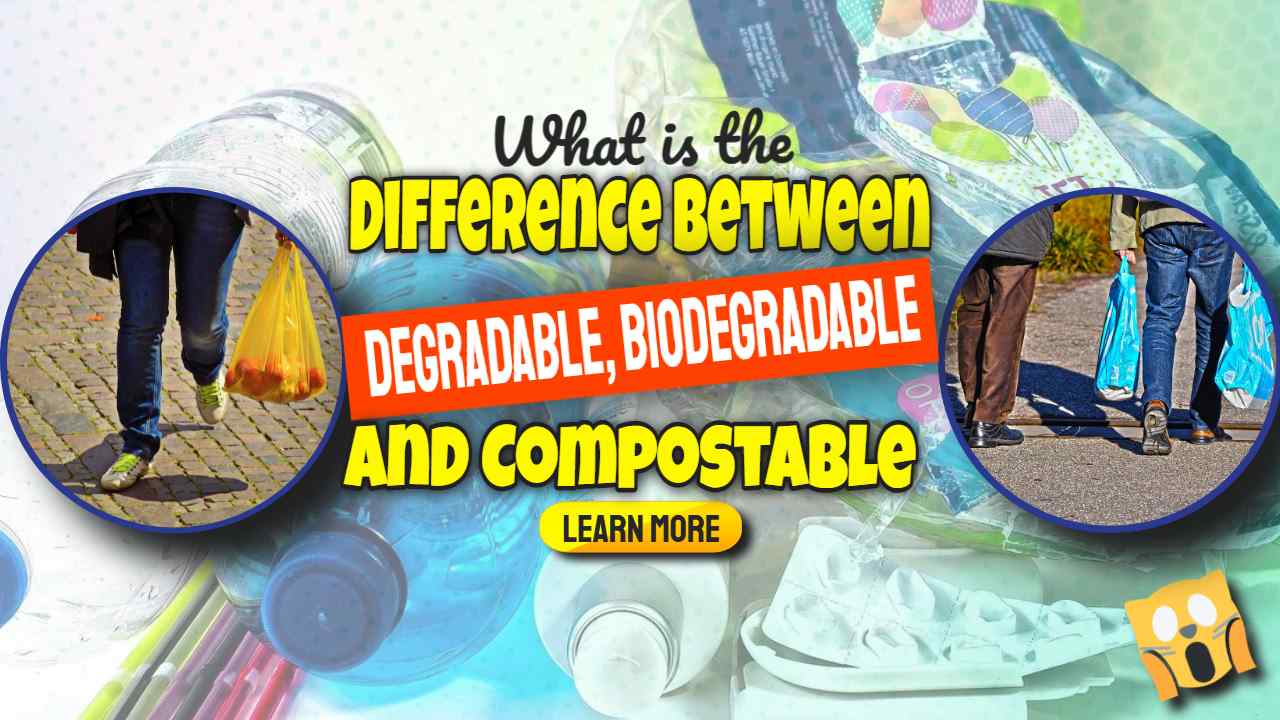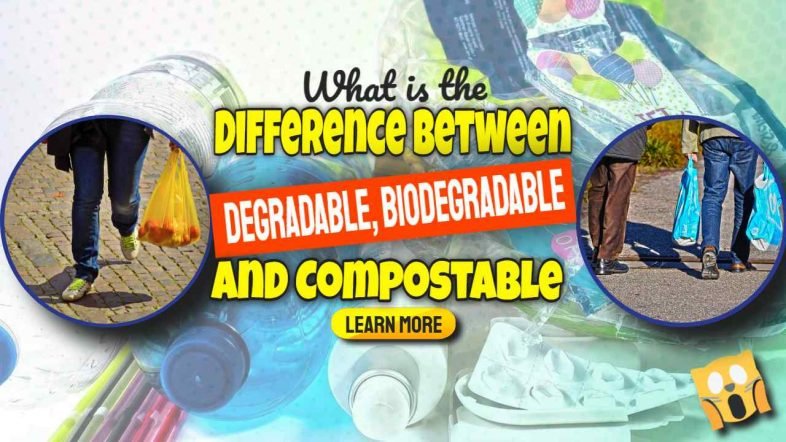Do you know what's the difference between degradable, biodegradable, and compostable plastics? Does degradable mean biodegradable, or compostable, or something else entirely? In this article we provide a break-down of the various terminologies, which we will relay to you here:
It is a fact that green buzz-words keep appearing and the terms “biodegradable”, “degradable” and “compostable” are now frequently used, particularly when the media discusses packaging or carrier bags.
Given how much they are used, one could think that their meaning is the same, but this is far from the fact.
Each term has a uniquely nuanced meaning and when it comes to waste management, and especially biowaste management. To be sure that you do your best to protect the environment let's be precise in our use and understanding of these meanings.
Without these terms, the experts would find it hard to explain how they figure out what the most suitable system of recovery is.
So what precisely do these terms mean and how does one know which materials are OK for your systems and processes? Read on and we will do our best to explain:
Bio-degradable
By Itself, the term bio-degradable does not mean very much as, in the end, everything made from organic materials is bio-degradable. There aren't any time limits or factors which outline bio-degradable, so it is just a general all-encompassing term.
Some products biodegrade quickly, while others take decades to biodegrade completely, depending on what they are made of and the thickness of the material.
As a result, when debating whether a product is biodegradable, it is critical to specify the precise environment in which biodegradation is intended to occur.
Composting, anaerobic digestion, soil, sea, and freshwater environments are examples of these.
The relevant global and EU Union standards make such references and are geared to explicit biodegradation environments (for example, composting and anaerobic digestion), as well as setting maximum timescales for the material to adequately biodegrade.

Degradable
Degradable materials, which are typically included in this category, are materials derived from a narrow range of materials used in the production of plastic bags.
These are mostly made of polyethylene or polypropylene with a metal-based addition and will be available in an uncertain time frame.
When exposed to heat or ultraviolet light, they will fragment into smaller particles, but they are generally slower to biodegrade than “compostable” plastics based entirely on other materials such as starch.
They may degrade slowly in the airless and permanently dark environment of a landfill. They also do not compost well within a compost pile for the same reasons.
Degradable plastic is hydrophobic (has a low affinity for water) and may attract other hydrophobic particles, such as insecticides and heavy metals, resulting in the bio-accumulation of hazardous substances.
Until now (2008), no biodegradable plastic has been certified as “compostable” by ECU standard EN 13432.
As a result, we conclude that these materials are not suitable for use in composting processes.
They are also unsuitable for recycling because the additives will remain in the recyclate, causing it to be unbalanced.
Contamination from biodegradables has resulted in leading recycling companies discovering that their loads containing degradable materials are refused at re-processing plants, and many composters have expressed concerns about long-term recyclate equilibrium.
Degradable plastics are not acceptable for primary packing use in the United Kingdom, according to WRAP, due to issues with recyclability and degradable materials failing to meet EN13432.
Compostable
These are the materials that biodegrade rapidly and completely through the action of natural microorganisms within the timescales specified in quality compost protocols.
These materials can be composted safely alongside the organic fraction of municipal solid waste to produce compost products. Compostable plastics differ from degradable plastics in that they do not impede the composting process because they are bio-degradable, disintegrable, and do not affect the final compost quality.
Endorsement of the ECU standard EN 13432 suggests that all of these necessities are satisfied when materials are compostable.
We hope that this has assisted you in understanding the meaning of the terms “biodegradable”, “degradable” and “compostable”. It should also help authors. We ask authors to use these terms with care, as they are indicative of quite significant differences in the materials to which they apply.
Conclusion
So, to put it simply, when you hear the words degradable, biodegradable, and compostable and the subject is plastics, remember that:
- bio-degradable sounds good and can be a green option, but the word doesn't mean very much unless it's more fully explained. Only when you know how quickly these materials will break down and in what environmental conditions this will occur, can you judge on negative impacts of these materials.
- degradable plastics are almost always polyethylene or polypropylene with a metal-based addition to make them degrade when exposed to ultra-violet light such as sunlight. That can be a good thing but can on the other hand be deceptive. When buried in a compost heap, for example, they may not degrade if they are buried and receive no light.
- compostable are the best plastics for the environment as they biodegrade rapidly and completely in a commercial compost heap. Unfortunately, they will not necessarily degrade very well in a garden compost pile.






